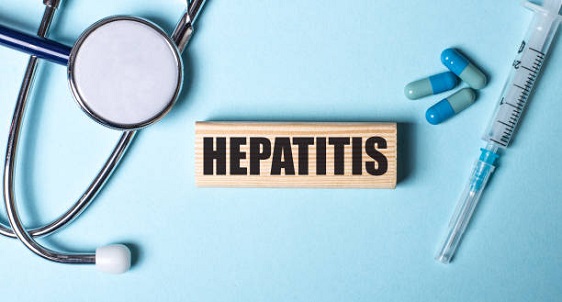It is estimated that about 2.8 million people have hepatitis B, while nearly 500,000 have hepatitis C in the country.
The condition has disproportionately higher burdens and mortality in the Upper East, Upper West, North East, Savannah, and Northern regions.
These came to light when Ghana joined the world to celebrate the 2024 World National Hepatitis Day last Friday, with a commitment to combat the health condition, improve public health and achieve broader health goals by 2030.
The event, organised by the Greater Accra Region Health Service and the Ablekuma-North Municipal Assembly, in collaboration with the Rotary Club of Accra Cantonments-East, aimed to increase awareness and promote preventive measures.
Dubbed “It’s time for action”, the programme aligns with the global call to elevate the discourse on viral hepatitis and drive collective action to mitigate its impact on the country.
The event aligned with the mandate of the 63rd World Health Assembly’s directive which is celebrated across the country on every July 28.
It featured educational sessions, free screening and vaccination to empower the public with the knowledge and tools needed to combat hepatitis.
Statistics
The Head of the Expanded Programme on Immunisation (EPI) at GHS, Dr Kwame Amponsa-Achiano, on behalf of the Director General of GHS, called for a collective action to eliminate the hepatitis disease by 2030, saying “defeating viral hepatitis begins with each of us and the time to start is now.”
He revealed that estimated statistics at the end of 2022 indicated that about 2.8 million Ghanaians had hepatitis B infection, while over 442,000 had active hepatitis C infection.
He, however, said many Ghanaians who were infected with the Hepatitis B and C virus were not aware they had been infected.
Dr Amponsa-Achiano said in the country, it was estimated that viral hepatitis, particularly hepatitis B and C, affected over 10.4 per cent of the population, which was slightly more than one in 10 people.
“This estimate could have been much higher but for the fact that more than 20 years ago, the country took a bold decision by introducing hepatitis B vaccine for children under one,” he said.
Targets
The Minister of Health, Dr Bernard Okoe-Boye, in a speech read on his behalf, said: “By 2025, Ghana is expected to meet the Africa Regional Office milestone of having diagnosed 30 per cent of people with hepatitis B and C and treated 30 per cent of people with hepatitis B and C.”
That means meeting these targets will require a significant acceleration of local and national efforts.” With six years to reach 2030, the Ministry is committed to mobilising resources to enhance its response,” he added.
To meet these goals, the Health Minister said the ministry had developed a comprehensive roadmap, the Universal Health Coverage (UHC) Roadmap 2020-2030, which included the National Essential Health Services package.
He commended the Government of Egypt for supplying medications for hepatitis B and C patients, and also acknowledged the technical support funded by the French government.
He called on the Ministry of Finance, the private sector, philanthropic organisations and donor partners to intensify efforts and support the fight against hepatitis.
The Officer in Charge of World Health Organisation (WHO) Ghana, Dr Frank Lule, on behalf of the WHO Regional Director for Africa, said WHO was committed to helping include hepatitis medications in national essential medicines lists and support efforts to eliminate viral hepatitis by 2030.
“I urge Ghana to accelerate introduction of the Hep B birth dose by taking advantage of the current opportunity to apply to the GAVI support in the September window”.
Dr Lule encouraged the private sector to explore new initiatives and investment opportunities to increase local production of hepatitis medications and strengthen the regional manufacturing sector.
He urged academia to offer innovative ideas and challenged traditional approaches in the fight against hepatitis.
Seek proper help
The Member of Parliament for Ablekuma North Constituency, Sheila Bartels, also stressed the need to work together to create awareness, build strong partnerships and mobilise resources to address the high burden of hepatitis.”
She encouraged everyone to get tested, and those living with hepatitis to seek early treatment and consult healthcare professionals to manage the condition effectively.
Graphic





